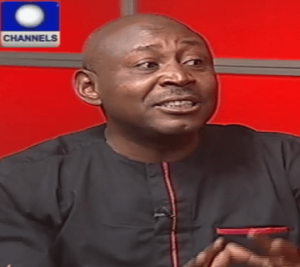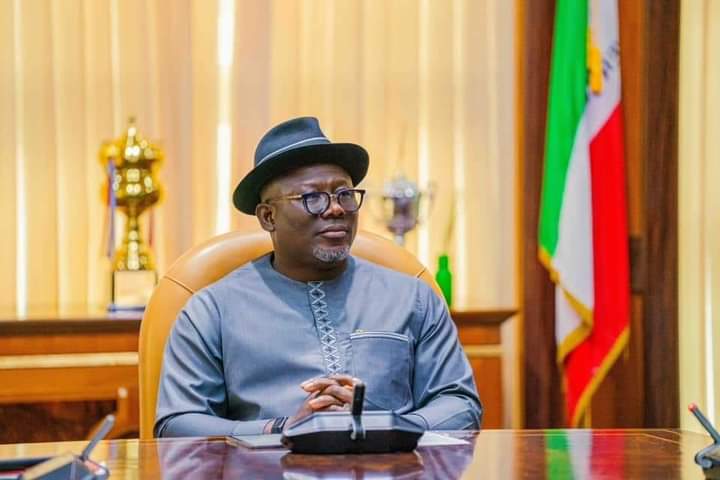
By Fred Edoreh
From creation on August 27, 1991, Delta State has grown rapidly in national and global socio-economic prominence.
With successive governmental leadership having contributed considerable quota, the state has progressed in filling the infrastructural deficit inherited on separation from the defunct Bendel State and incumbent Governor, Rt Hon Sheriff Oborevwori, is poised to advance the frontiers even greater with his MORE Agenda.

After surmounting the initial challenge of establishing a new work force for its public service, the state now boosts of not just the most modern and highly integrated State Secretariat but ranks among the best in workers’ reward and welfare system in Nigeria while Oborevwori has heightened the motivational regime by acceding to various workers demands, including his approval of payment of promotion arrears accumulated over the years.
To cushion the economic effect of fuel subsidy removal by the Federal Government, he has further approved extra N10,000 monthly for the over 50,000 workers for the next three months in addition to introducing a shift system to reduce their working hours to a maximum of three days a week.
While development in the old Bendel State was seen to have been concentrated in the Benin area, the state has pursued the urbanisation of its tens of major towns as well as the opening up of hundreds of rural communities with link roads.
According to the State Ministry of Works, the Oborevwori administration has inherited over 400 ongoing roads, bridges and allied projects. He has committed to consolidation by ensuring their completion and further advancing the frontiers of roads and access networks across the state.
It is perhaps for this reason and with a view for closer attention, efficient implementation and monitoring for quality delivery that he maintained the splitting of the works ministry into two, with a separate commissioner for Rural Roads and another for Highways and Urban Roads.
The education sector has also been grown, for instance, from just one university in Abraka at inception, to eight state owned tertiary institutions. This includes four universities with multi campuses, colleges of education and polytechnics as well as technical and specialized tertiary institutions to cater for the growing population of school leavers seeking higher education.
Also increased is the number of technical colleges, secondary and primary schools in addition to private sector investments in education.
On this, Oborevwori was clear when he said at the swearing-in ceremony of his cabinet members that his administration “will spare no expense in providing the conducive climate essential for high quality learning experiences in our schools.”
Part of the process was his recent approval of the recruitment of over 2000 staff to fill existing vacancies in primary schools and the carrying out of a comprehensive audit of physical infrastructure in primary and secondary schools, in due course, to identify and respond to needs.
The health sector has also been advanced in fair measure with the state leading in Contributory Health Insurance scheme as well as in various policies and programmes for specialised, free and primary health care delivery.
Delta State continues to contribute the highest quota to the national revenue through its rich deposit of oil and gas but this also comes with enormous pressure for the security of production facilities, the attendant environmental degradation from exploration and the dissatisfaction of the people over the inequilibrium on benefits from their resources.
Notwithstanding, successive administrations have managed the situation so well to sustain the national economy while also working hard in progressively diversifying the state economic base to generate new opportunities for employment, enterprise and wealth creation.
This has manifested in the establishment of the Delta State Job Creation Office which runs various skills acquisition and start-up support programmes, and most eminently, the industrial parks in Asaba and Kwale, Gas Park at Warri, Agro Industrial Park at Ogwashi-Uku and and a Free Economic and Export Processing Zone in Koko, all of which in full blossom are expected to yield high domestic and foreign direct investments and enterprises across sectors, attract new technologies and generate hundreds of thousands of new jobs.
Interestingly, Oborevwori is aiming at further raising the bar with the ongoing consideration for investment in electric and compressed natural gas mobility not only to transform public transportation in the state but also to provide alternative vehicle energy systems in the automotive sector which will also culminate in new jobs.
With the highest number of distinct linguistic and ethnic nationalities in Nigeria, the socio-political leadership of Delta State has been most outstanding in the management of its diversity. This is pronounced even more in the consensus for rotation of power among its three Senatorial Zones which continues to ensure political stability and social harmony.
Governor Oborevwori has come to further cement the cohesion with repeated insistence on his appointees that his administration shall exercise zero tolerance for discrimation and nepotism while assuring that development projects shall be evenly distributed.
This is the strength of Delta State, unity in diversity, and at 32, it has the most visionary, empathetic, Pan Delta advocate and unifier leading the way into our new world.




GIPHY App Key not set. Please check settings